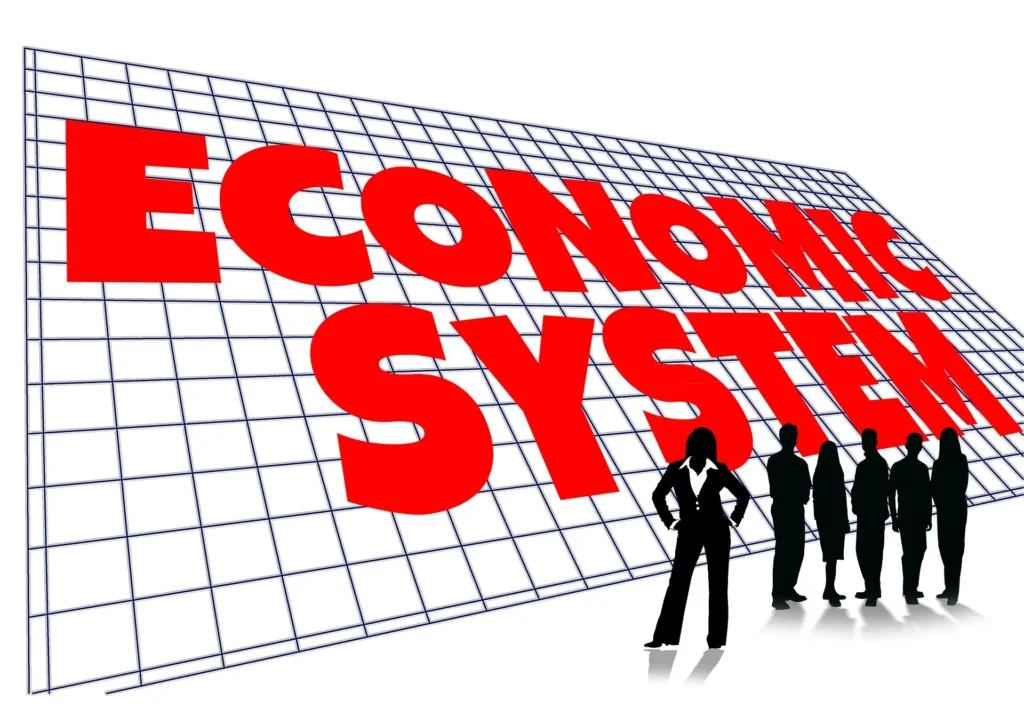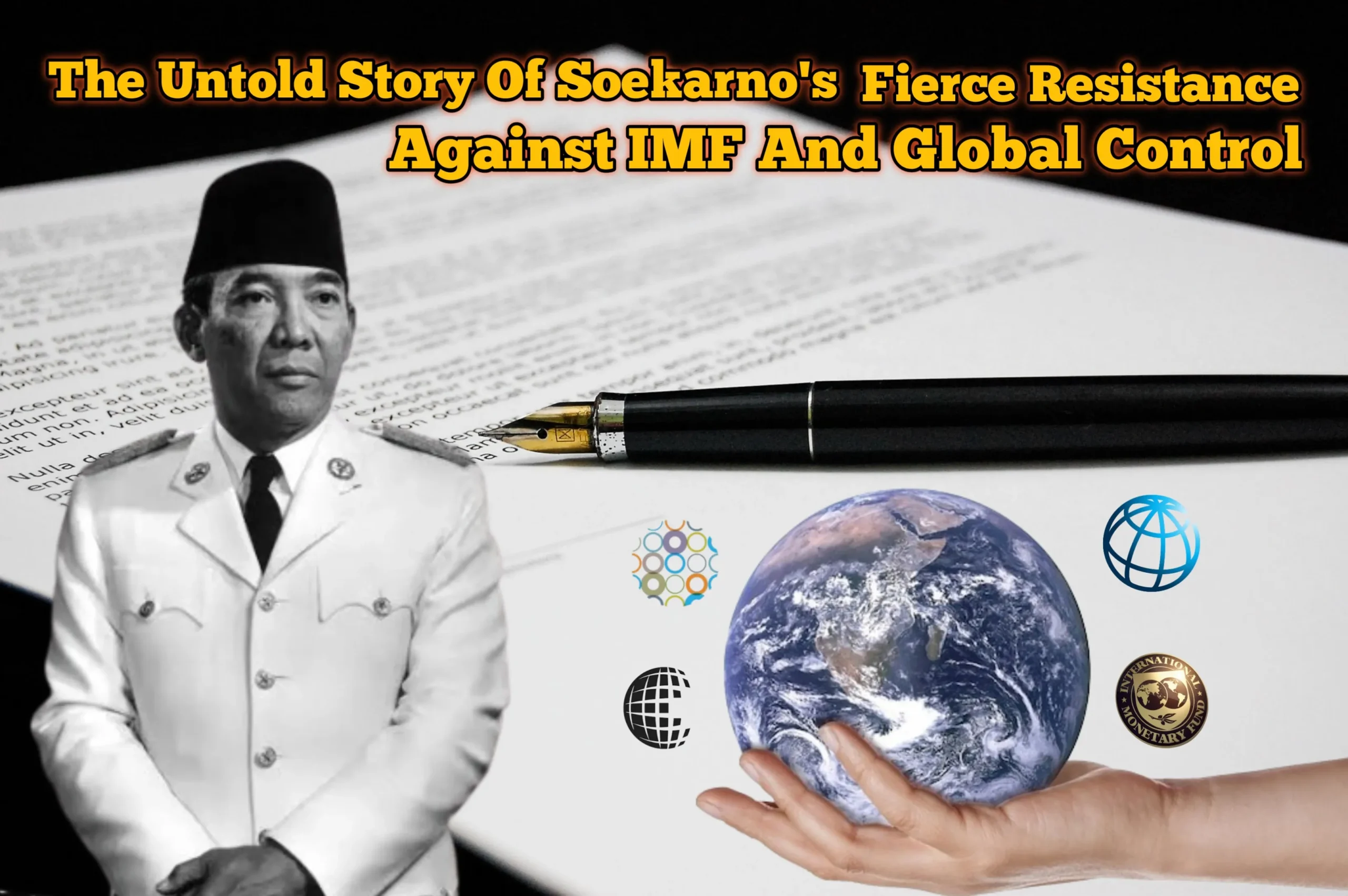If Independence Can Be Signed On Paper, Then Colonization Can Begin In The Same Way.
Indonesia was not colonized twice. Indonesia was plundered without ever truly becoming independent. In 1967, Soekarno had just fallen from power. The seat of power had changed, but secretly, the negotiating table had already been set. Not by the people, not by the government, but by foreign powers who had been waiting for a long time.
In Geneva, a secret conference was held. For three days, the Indonesian delegation was present, but their counterparts were not a country. They were Rockefeller, the IMF, the World Bank, and the Ford Foundation. They talked about “development aid.” But what actually happened was the division of Indonesia’s mines, oil, and forests. Without debate, without news, without the people’s knowledge. How could Indonesia’s natural resources be transferred in just three days?

Indonesia’s Wealth And Global Threats.
Indonesia appears poor on the surface. But beneath the surface lies wealth that tempts the world. Gold, copper, oil, coal, bauxite, nickel, uranium. All the elements needed to build and dominate the modern world. And Soekarno knew that. He knew that Indonesia was too rich to be left open like that. But it was also too fragile to defend without preparation.
Indonesia did not yet have the technology, did not yet have enough engineers, but Soekarno had one principle: Give a little, leave the rest for Indonesia’s children and grandchildren. That is why he rejected foreign expansion, delayed large-scale exploitation, and chose to build technical universities, research institutions, and train domestic engineers. Soekarno talked about independence, while the world talked about rapid development. And for global powers, delay was a form of resistance. And resistance had to be stopped. Soekarno nationalized foreign companies: Shell, Caltex, Unilever. Soekarno rejected the IMF and the World Bank. He called the economy a new form of colonialism.
In various speeches, he shouted: We do not want to be coolies in our own country. Let alone coolies among nations. And that was his greatest sin in the eyes of foreign powers. Because Soekarno was not just a nationalist. He was a direct threat to the global economic system that wanted to re-colonize Indonesia through debt and contracts. After that, everything happened quickly. Diplomatic pressure, economic blockade and finally a coup packaged in a narrative of political stabilization.
When Sukarno fell, it wasn’t just a new regime that came in. It was a new economic system designed by Rockefeller and the Ford Foundation. Those who had been sent abroad to study now returned as development experts. The blueprint that had been prepared was immediately put into action. And Indonesia officially opened its doors. For investors, for foreign interests, and for the irreversible exploitation of natural resources. And when Sukarno fell, the secret negotiation table that had been prepared was finally opened.

A Secret Conference And Three Days That Changed Everything.
February 1967, Geneva, Switzerland, cold air, closed rooms, but this meeting set Indonesia’s future ablaze. It had a beautiful name, the Indonesia Economic Conference. But its content was the distribution of Indonesia’s natural resources into foreign hands. Those in attendance were not just the Indonesian government, but a line-up of global elites: the IMF, World Bank, Asian Development Bank, and Ford Foundation. As well as one main sponsor: Timelife Corporation, a media and business giant from the United States. Leading the way was David Rockefeller. Not an official, not a diplomat, but a banker who was quietly more influential than many heads of state. He was not a guest, he was the host.
This is where the direction of Indonesia’s economy was determined. Not in Jakarta, not in the House of Representatives. But behind the tables of luxury hotels in the heart of European capitalism. Ironically, the Indonesian delegation was not present as decision-makers, but as participants listening to how the future of their nation would be shaped. They came bearing the name “New Order.” The government that had just replaced Soekarno. And this conference was not impromptu.
Documents from the Ford Foundation and Harvard Kennedy School show that this conference had been prepared even before Soekarno officially fell. This means that the plan was already mature. All that was left to wait for was one thing: a compliant regime. And when the time came, everything happened very quickly. Three days! That was all the time it took to transfer control of Indonesia’s economy. At the Geneva forum, documents were opened, proposals were read, and contracts were signed. In an unreasonable amount of time, all of Indonesia’s strategic sectors were distributed.
Freeport obtained concessions for gold and copper mining in Papua. Caltex, Mobil Oil, and Stanvac entered the oil sector. Exxon and International Paper targeted the forests of Kalimantan and Sumatra. Alcoa targeted bauxite in Riau. General Electric and Bechtel targeted infrastructure projects. And all of that happened even before Papua’s status was fully legitimate politically and nationally integrated.
Indonesia was in a period of political transition, the military was still consolidating, and the people were still traumatized by the events of 1965. And that was when the mines and land were sold in silence. Long-term contracts were drawn up under international law. They were binding for decades and could hardly be canceled unilaterally. All of this was wrapped up in the term “Development Cooperation.” But in reality, it was large-scale privatization.
This was the beginning of everything. The beginning of the loss of state control, the beginning of foreign debt, the beginning of an economic system that only benefited those sitting behind the tables in Geneva. And the people? They remained poor! They remained laborers on the land that Soekarno had once tried to protect.
The New Order Blueprint And Rockefeller’s Legacy.

After Sukarno fell, Indonesia was not rebuilt by its own people. Instead, it was rebuilt according to a blueprint prepared from outside the country. Young economists who had been sent to the United States by the Ford Foundation returned home with one mission: to implement a new economic system. This system was not the result of deliberation or domestic research, but rather the result of a short course on how to open markets, attract investors, and submit to deregulation.
They were called the Berkeley mafia. They were promoted as “Modern Technocrats” who were neutral in politics. In fact, they had a grand agenda: to turn the Indonesian economy into a laboratory for global capitalism. And the main actors were Rockefeller, the IMF, the World Bank, and the Asian Development Bank. Everything that Soekarno had once rejected was now in control. Soekarno said, “First engineering, then exploitation.” But what happened was the opposite. Exploitation first, without engineering.
The concept of development was replaced with “Economic Growth,” state assets were used as collateral for debt, and the debt was used to pay for projects that were never completed. Indonesia was forced to build roads, ports, and industries not for the people, but to facilitate access for foreign companies. The IMF became the referee. The World Bank became the advisor. And the technocrats are merely following the script.
Indonesia was given loans, given instructions, labeled as developing, and then slowly drained of its wealth. In a short period of time, Indonesia will no longer belong to the people, but will become part of a global economic system controlled by those who have never elected by the Indonesian people.

Is Indonesia Being Colonized Again, Without Realizing It?
The war ended long ago, the colonizers left long ago, but why the Indonesian people still poor? Why are natural resources controlled by foreign companies? Why are forest cut down, mines dug up, oil extracted, but the money never reaches the people? The answer is simple: colonialism never really stopped. It just changed form. From weapon to debt, from soldiers to business contracts, from invasion to “Development Cooperation.” And now, Indonesia no longer colonized by the Dutch or the Japanese, but by the global economic system. Compiled by Rockefeller, the IMF and multinational corporations. Those who once attacked with warships now come with investment proposals. Those who once seized by force now bind with loan interest and infrastructure projects. And when the Indonesian people refuse, they are called irrational. Unmodern. Unprogressive.
Soekarno was overthrown, but not because he failed develop the country, nor because he was authoritarian. It was because he refused to surrender Indonesia’s economic sovereignty. And when Soekarno fell, in just three days, everything he had protected was sold off in silence. Now, 80 years since independence was declared, but is Indonesia truly independent? Because the system they built still works, still sucks, still makes the people spectactors in their own land. And the final question is, if all of this was planned long before we were born, can we still believe that we are truly free?
They don’t need weapons to colonize our nation again, just a negotiating table…and a signature.
Disclaimer
The information provided on this website, including but not limited to articles about technology, finance, stock markets, investment, business, self-development, trading, sales & marketing, music, and other related topics, is intended solely for general informational and educational purposes. While every effort is made to ensure the accuracy and reliability of the content, neither the website nor its authors make any warranties or representations regarding the completeness, accuracy, or suitability of the content for any specific purpose.
The contents of this website do not constitute professional, financial, investment, legal, or other expert advice. Readers are advised to consult with suitably qualified professionals regarding specific issues or decisions. Any reliance placed on such information is strictly at your own risk.
Neither the website nor its owners, authors, or affiliates shall be held responsible or liable for any loss or damage—direct or indirect—that may arise from the use of, or reliance on, information provided herein. Past performance in financial markets or business is not indicative of future results. The website may include links to third-party websites for your convenience; however, we do not endorse or take responsibility for the content or accuracy of external sites.
By using this website, you agree to assume full responsibility for any actions taken based on the information presented, and acknowledge that the website expressly disclaims all liability to the maximum extent permitted by law.

